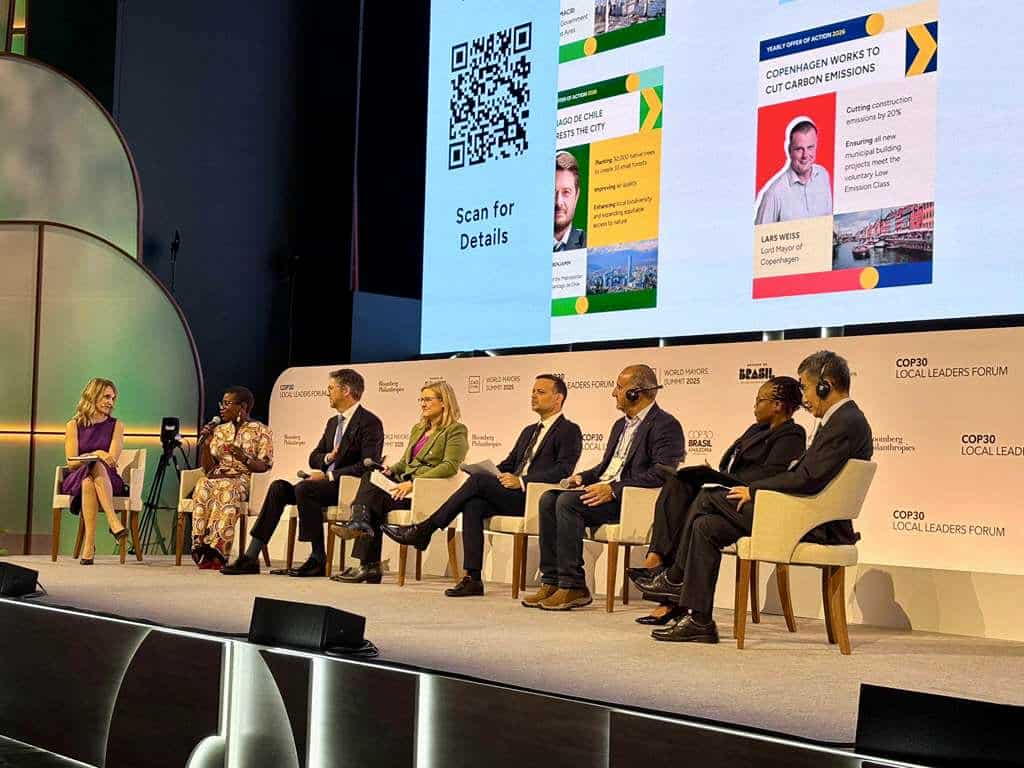
A new global coalition of cities has pledged urgent, coordinated action to tackle one of the most dangerous impacts of the climate crisis, extreme heat.
Announced on the first day of the C40 World Mayors Summit in Rio de Janeiro, Brazil, the Cool Cities Accelerator will help urban leaders protect residents, safeguard economies, and redesign cities for a hotter future.
The initiative brings together 33 founding cities representing more than 145 million people across all regions of the world, including five in Africa: Accra (Ghana), Durban (Ethekwini, South Africa), Freetown (Sierra Leone), Nairobi (Kenya), and Tshwane (South Africa).
“Extreme heat is no longer a distant threat; it’s a daily reality affecting the lives and livelihoods of millions around the world,” said Elizabeth Yee, Executive Vice President of The Rockefeller Foundation.
The Accelerator was established by C40 Cities with support from The Rockefeller Foundation, and implementation support from the ClimateWorks Foundation, Robert Wood Johnson Foundation, Z Zurich Foundation, the Danish Ministry of Foreign Affairs, and IBM.
Extreme heat is already the deadliest weather-related hazard worldwide, responsible for nearly half a million deaths each year. Without decisive action, the number of people exposed to life-threatening urban heat could increase fivefold by 2050.
The vast majority of heat-related deaths are preventable through timely access to cooling, hydration, medical care, public health interventions, and improved infrastructure. Vulnerable populations, such as the elderly, outdoor workers, and those without access to air conditioning, are most at risk during periods of dangerously high temperatures.
The Cool Cities Accelerator provides a science-based, practical framework for cities to take both immediate and long-term action.
Yee said the participating cities would collaborate, share best practices, and report progress on two main goals: Protecting residents now by establishing clear heat leadership, strengthening early warning systems, and ensuring access to cooling during emergencies within two years and Transforming cities for the future by improving building standards, expanding urban tree cover and shade, and future-proofing critical infrastructure within five years.
“Through the Cool Cities Accelerator, we’re proud to support mayors who are investing in bold, science-based solutions to future-proof health systems and ensure they can withstand 21st-century challenges,” Yee added.
“Local leaders are not just responding to the climate crisis today, they’re redesigning urban life to protect people, strengthen economies, and build a cooler, safer future for all.”
“Extreme heat is a silent killer and an increasingly urgent global threat,” said Mark Watts, Executive Director of C40 Cities.
Watts noted that the number of days major capitals experience temperatures above 35°C has increased by 54 per cent over the past twenty years.
“Cities are showing real leadership by taking practical steps to protect communities, safeguard economies, and create more livable urban environments,” he said.
In support of the Cool Cities Accelerator, The Rockefeller Foundation is providing a grant of approximately USD 1 million to develop targets for heat adaptation and offer technical assistance to help cities implement solutions that mitigate the dangerous effects of extreme heat.
The initiative is part of C40 Cities’ broader mission to support bold, science-based climate action in the world’s largest and most influential urban areas.
By sharing strategies and scaling proven solutions, cities can act faster and more effectively than they could alone. Together, participating cities represent a global movement to save lives, strengthen resilience, and create thriving, heat-resilient cities for generations to come.

















